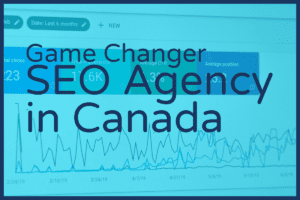 While the term lead generation is not new, it has been something of a misnomer. Until recently, lead generation endeavors were such primarily in name only. These efforts often focus on the short term, with very little attention, if any, paid to the complex sale, a key component of any effective lead generation campaigns.
While the term lead generation is not new, it has been something of a misnomer. Until recently, lead generation endeavors were such primarily in name only. These efforts often focus on the short term, with very little attention, if any, paid to the complex sale, a key component of any effective lead generation campaigns.
The complex sale focuses on the wants and needs of the target audience, and is valuable to businesses engaged in long-term sale processes that require prolonged education and nurturing of the prospect. The key – and the challenge – is to create lead generation campaigns that will increase the odds of producing better sales leads, ultimately resulting in long-term, happy and profitable customers.
InTouch, Inc., employs eight critical success factors that produce the kind of lead generation campaigns aimed at best serving today’s complex sales objectives.
1. Conversation, Lead Generation Campaigns
Lead generation requires a sustained effort to succeed, often over a relatively long period of time. To be successful, lead generation campaigns must develop relationships between people through dialogue that presents the effort as conversation, with the underlying objective being identifying, initiating and nurturing productive selling situations. Research has shown that ongoing relationships are key to securing sales.
2. Sales and Marketing as a Team
Mindset, strategy, tactics and talent are irrelevant without collaboration. The importance of the harmonious interaction of sales and marketing cannot be overstated. Lead generation, consistently the most crucial link between sales and marketing, offers a variety of opportunities for improving teamwork. Fostering bidirectional communication will also enhance effective lead generation campaigns.
3. An Ideal Customer Persona
The idea behind the ideal customer persona is to focus on prospective companies with the greatest likelihood of becoming profitable customers. It’s a basic framework that helps determine when to pursue a potential customer and when to pass, as well as how to spend time, energy and financial resources in surveying the most productive opportunities.
4. A Universal Lead Definition
A universal sales lead is one that has been determined to fit the profile of the ideal customer. It prioritizes and defines the degree of sales readiness. Creating a universal lead definition starts with ferreting out what sales and marketing consider to be the characteristics of an ideal sales opportunity. It’s then critical to determine what information is needed to see if the prospect qualifies as an ideal customer.
5. An Effective Lead Management Process
Lead management involves monitoring and directing the conversion of sales leads into customers. An effective program implements and enforces standard, universal lead-scoring definitions and establishes a clear process for handling and distributing inquiries and leads. It identifies best opportunities using a consistent methodology based on your sales process and the buying process of potential customers.
6. A Foundational Database
The properly designed and well-maintained database is the hub of all lead generation activity and communication. Because sales, marketing and other diverse corporate groups are all involved in the complex sale, it’s important that the useful information about a prospect is captured in a single central location that is accessible to all. The ideal customer profile and universal lead definition should drive the fields in the database.
7. Integrated Multimodal Tactics
To be successful in generating leads for a complex sale, marketers cannot rely on one specific tactic. An informed strategy is required for reaching the targeted decision makers — a strategy with multimodality of tactics and repetition of messages as key elements. Multimodal lead generation campaigns heightens the response rate potential due to the fact that it more effectively impacts contacts.
8. Consistent Lead Nurturing
A secret to successful lead generation campaigns is the underlying process of lead nurturing, which converts inquiries into qualified leads and starts them on a trajectory to capture sales. Lead nurturing is a series of steps and communication tactics aimed at building a relationship with the potential customer. The relationship will result in conversations that may convert to sales.
[ “7474, 7320, 7118”]



